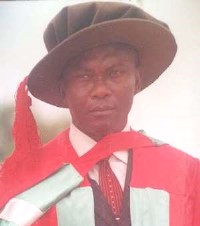on civil construction projects in Nigeria
FEATURED PAPER
By Dr. Uzoma Francis Amaeshi
and
Dr. Amade Benedict
Federal University of Technology, Owerri
Imo State, Nigeria
Abstract
This research project focuses on the impact of a diverse workforce on an organization. We seek to extend the frontiers of existing research on workplace diversity by conceptualizing and empirically examining the effects of different variables that could bring about effectiveness on organizational and employee performance. 72 respondents were gathered from the purposively selected study area using different types of sampling techniques. We collected data through simple Random sampling method and used a qualitative case study including interviews and observations, using appreciative inquiry to learn more about the positive behaviors of employees in a diverse workforce. The results from the research shows that employee training, leadership support, recruitment and employee work experience are key to effective managerial performance. We recommend that organizations should strive to employ employees of diverse cultural backgrounds and experiences because a diverse workforce will lead to higher performance, increased efficiency and improved productivity.
Keywords: diversity, management, civil construction, effectiveness, productivity
- INTRODUCTION
1.1 Background of the Study
Workforce is defined as “the totality of the people working in an organization” (Hornby 2005). Workplace diversity is defined by Kreitner and Kinichi (2004) as “the multitude of the individual differences and similarities that exist among the people working in an organization”.
This definition is chosen because it underscores an important issue about managing workplace diversity, namely that there are many different dimensions or components of workforce diversity.
This implies that workplace diversity “pertains to everybody in the organization. It is not an issue of demographic characteristics such as age, race, or gender alone” (Thomas, 2006). In other words, “it pertains to the host of the individual differences and similarities that make all the workers in the organization unique and different from the others. In other words, workplace diversity is not synonymous with the differences of the workers. Rather, it encompasses both differences and similarities.
This means that managing workplace diversity entails dealing with both simultaneously” (Thomas, 2006). Thus, workplace diversity includes the collective mixture of differences and similarities of the workers. Dealing with workplace diversity “requires managers to integrate the collective differences and similarities. Both of them have to be properly examined, determined and established” (Thomas, 2006).
Harold and Kumar (2012) points out “that in organizational performance index, diversity should capture practices that involve understanding and appreciating interdependence of humanity, culture, and the natural environment; practicing mutual respects for qualities and experiences that are different form our own; understanding that diversity includes not only ways of being but also ways of knowing; recognizing that personal, cultural and institutionalized building alliances across differences in other for people to work together to eradicate all forms of discrimination”.
This study is undertaken to examine the underlining concept of workforce diversity and how it relates to organizational performance. This is important to establish the underpinning variables that give rise to underachieving or overachieving of employee performance. An examination of literature shows little known fact about the relationship of workforce diversity, their needs, motivation and reservations concerning organizational performance.
This study contributes to organizational culture’s literature by showing that workforce diversity and organizational goals are an important facet that binds the employees’ involvement thus increasing commitment. The concept of workforce diversity and organizational performance has been debated in the last five decades. Workforce diversity and organizational culture has been frequently said “to be responsible for all manner of positive and negative ills”. (Sliani and Lau, 2005). A better understanding of the concept would allow employees in organizations to solve problems and improve performance.
Diversity issues are now considered important and are projected to become even more important in the future due to increasing differences in the population of many countries. Companies need to focus on diversity and look for ways to become totally inclusive organizations because diversity has the potential of yielding greater productivity and competitive advantages. Managing and valuing diversity is a key component of effective people management, which can improve workplace productivity.
More…
To read entire paper, click here
How to cite this paper: Amaeshi, U.F.; Benedict, A. (2020). Effects of workplace diversity practices on civil construction projects in Nigeria; PM World Journal, Vol. IX, Issue I, January. Available online at https://pmworldlibrary.net/wp-content/uploads/2020/01/pmwj89-Jan2020-Amaeshi-Benedict-effects-of-workplace-diversity-on-construction-projects.pdf
About the Authors

Dr. Uzoma Francis Amaeshi
Federal University of Technology
Owerri, Imo State, Nigeria
![]()
Dr. Uzoma Francis Amaeshi is a senior lecturer in the department of Project Management Technology, Federal University of Technology, Owerri, Imo State, Nigeria. His doctoral work is in Management with areas of research interest that include: Human Resources Management; Organizational Development and Entrepreneurship development. Dr. Amaeshi can be contacted at uzor1958@gmail.com.

Amade Benedict, PhD
Federal University of Technology
Owerri, Nigeria
![]()
Dr. Amade Benedict is a Project Manager by Profession. He read and obtained a PhD (Doctor of Philosophy) Degree in Project Management Technology from the Federal University of Technology, Owerri, Nigeria. He is a member of the Project Management Institute (PMI) U.S.A. and presently lectures in the Department of Project Management Technology of the Federal University of Technology, Owerri, Nigeria for the past 9 years. His areas of research interest include construction project management, computer-based project management and construction supply chain management. He has authored over 20 scientific publications in international refereed journals and is actively involved in other consultancy works. He can be reached on benedictamade@yahoo.com or benedictamade@futo.edu.ng









